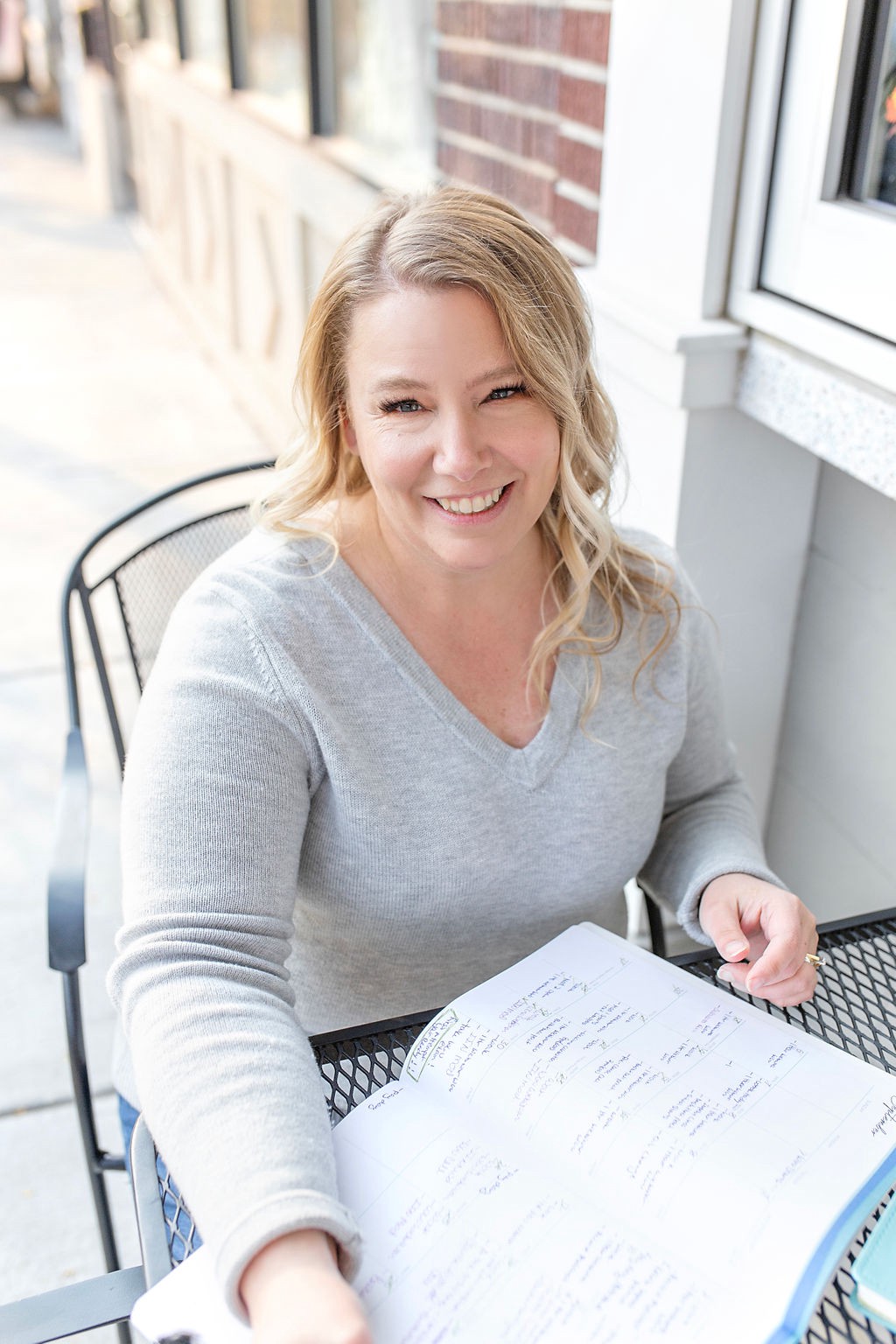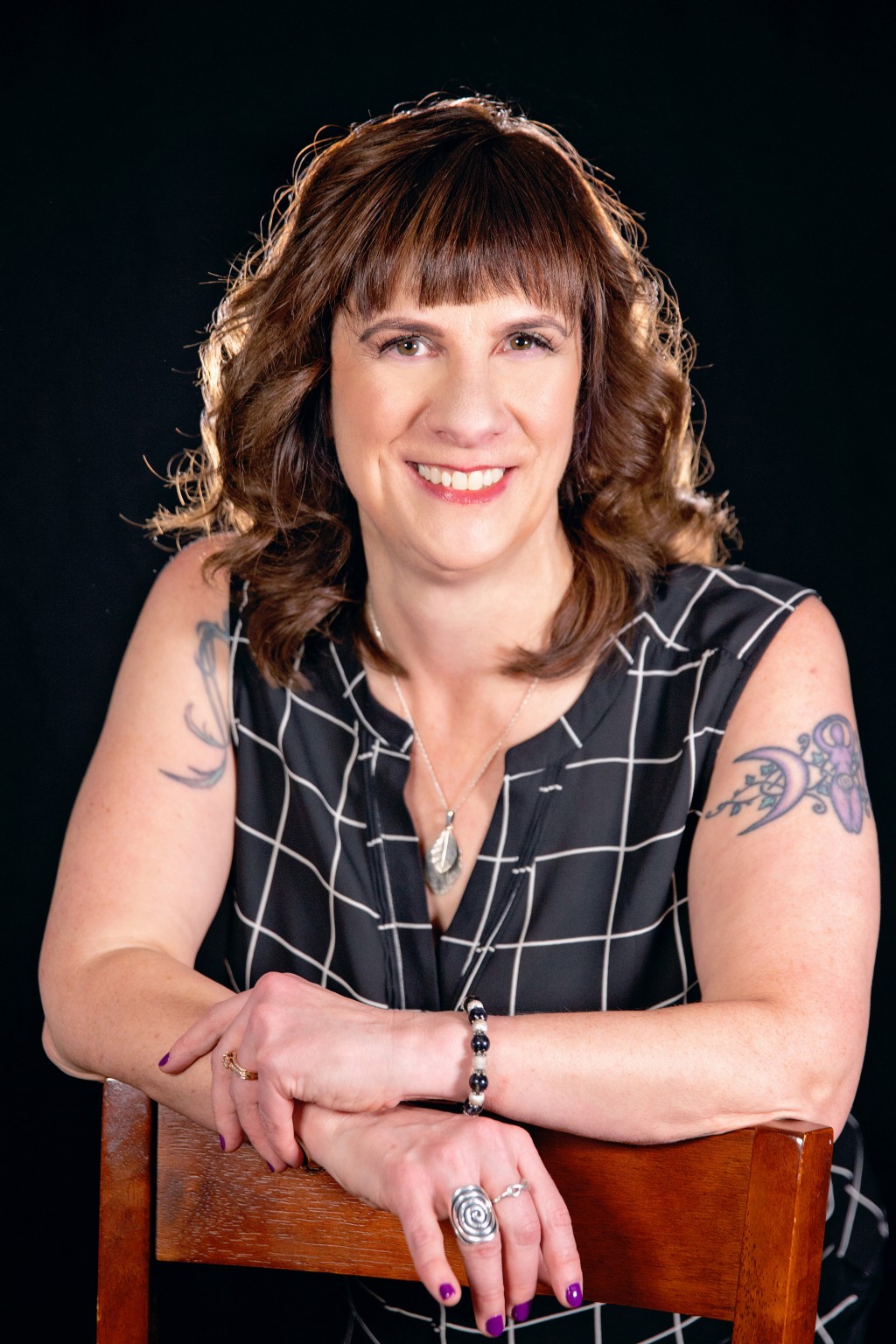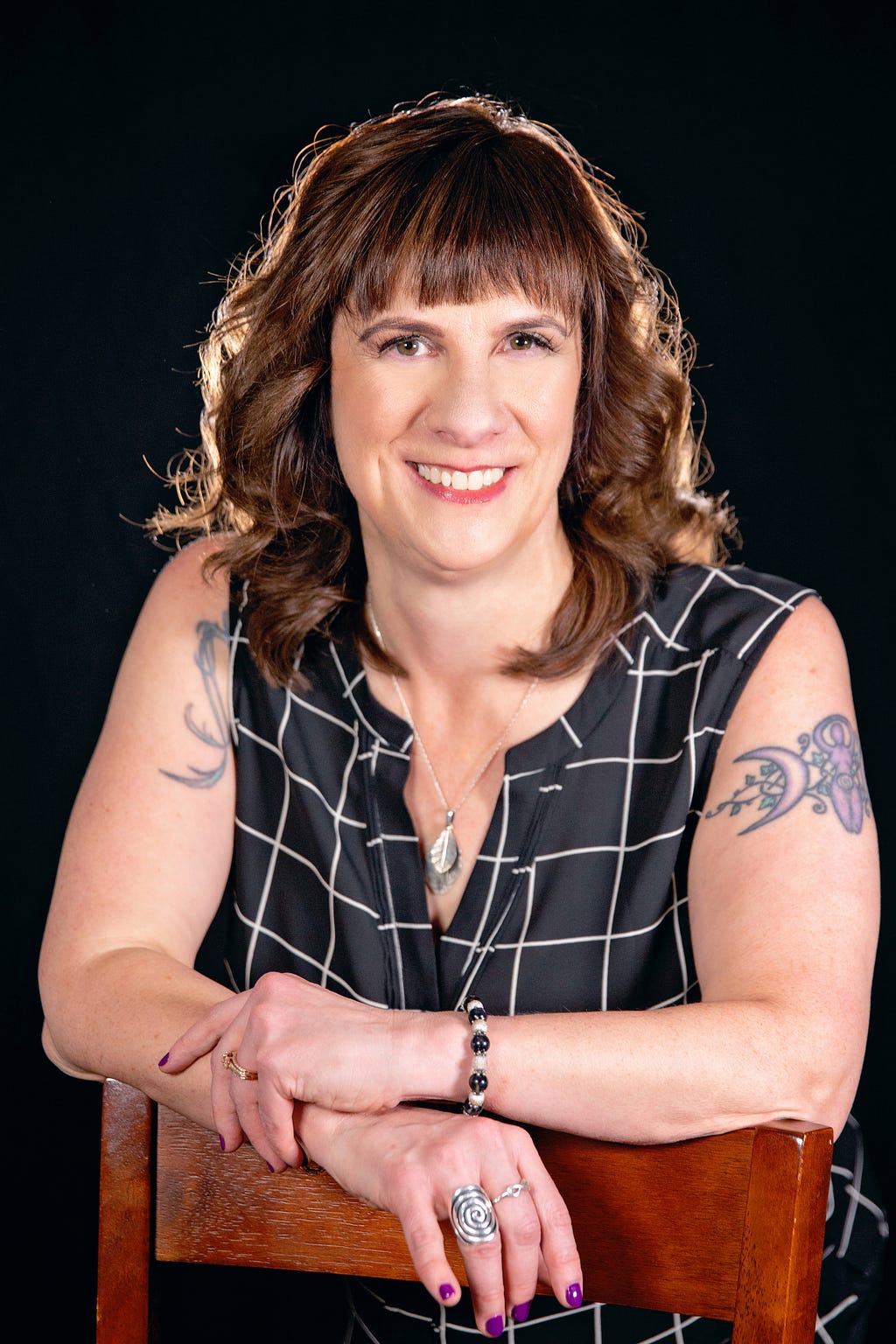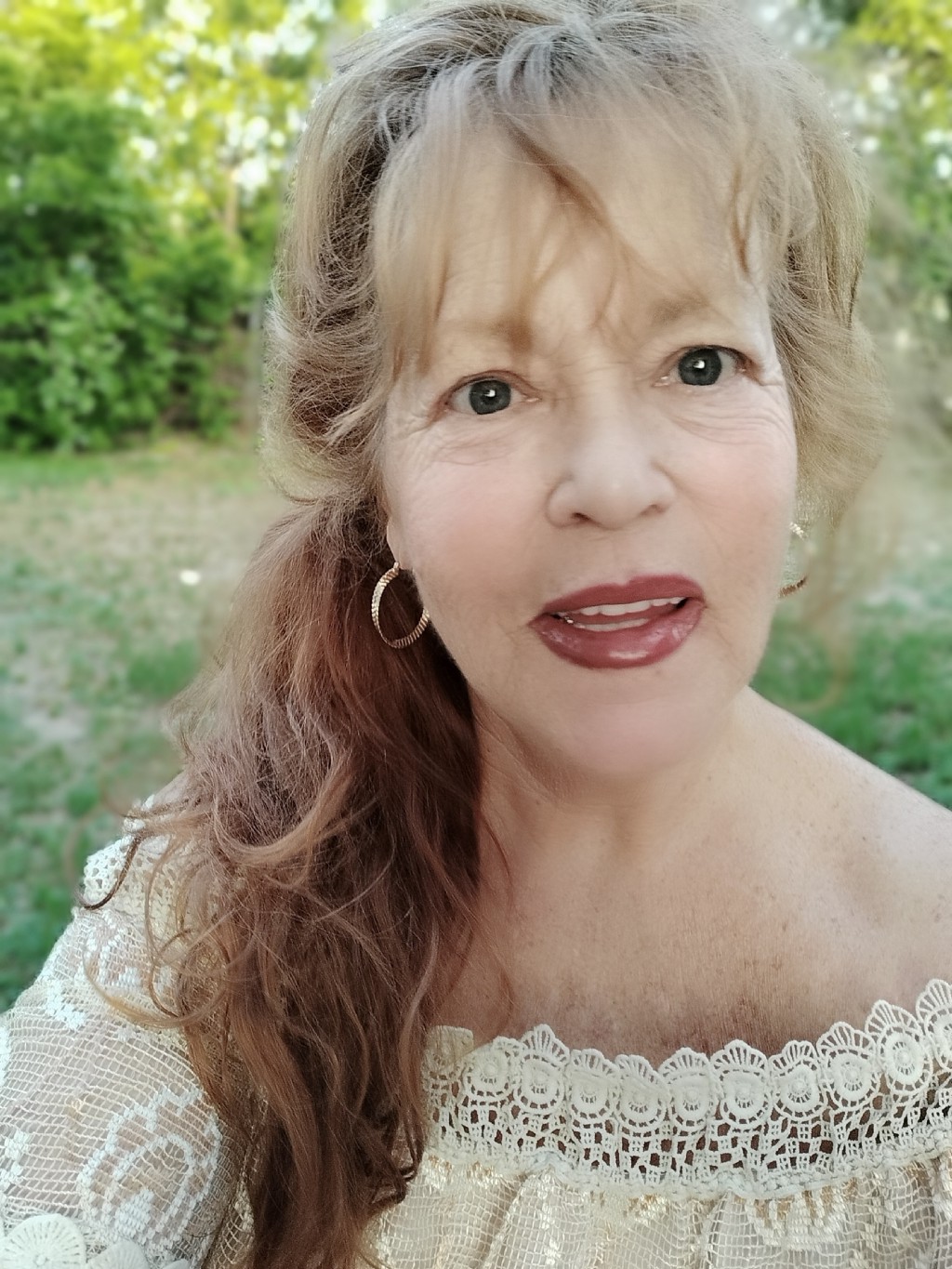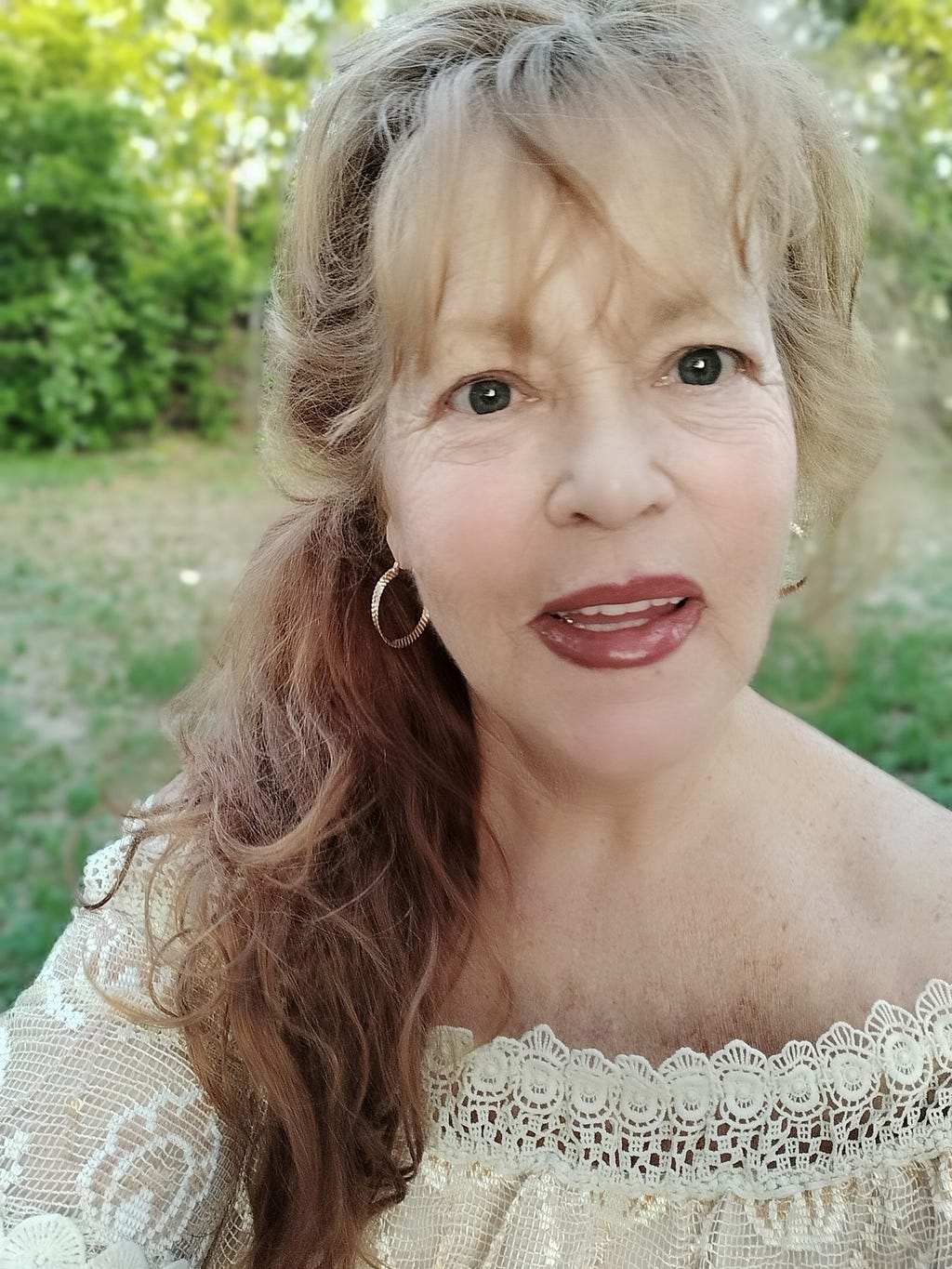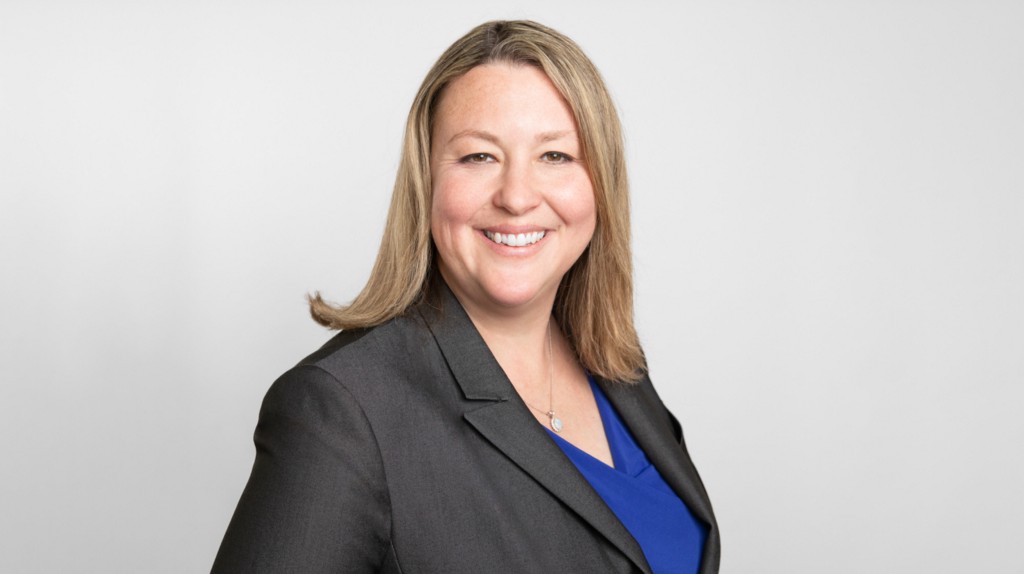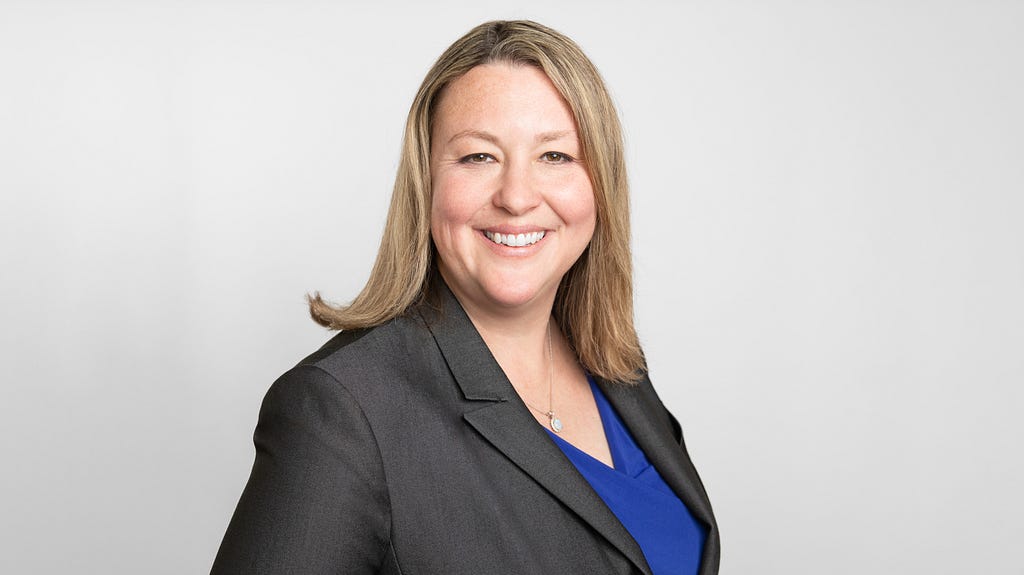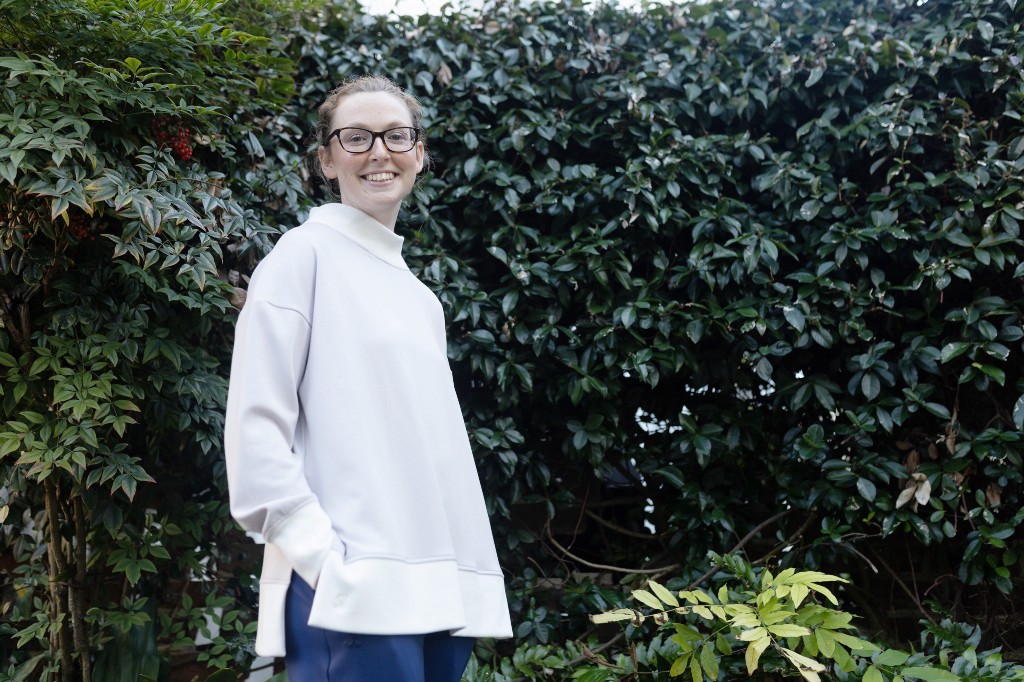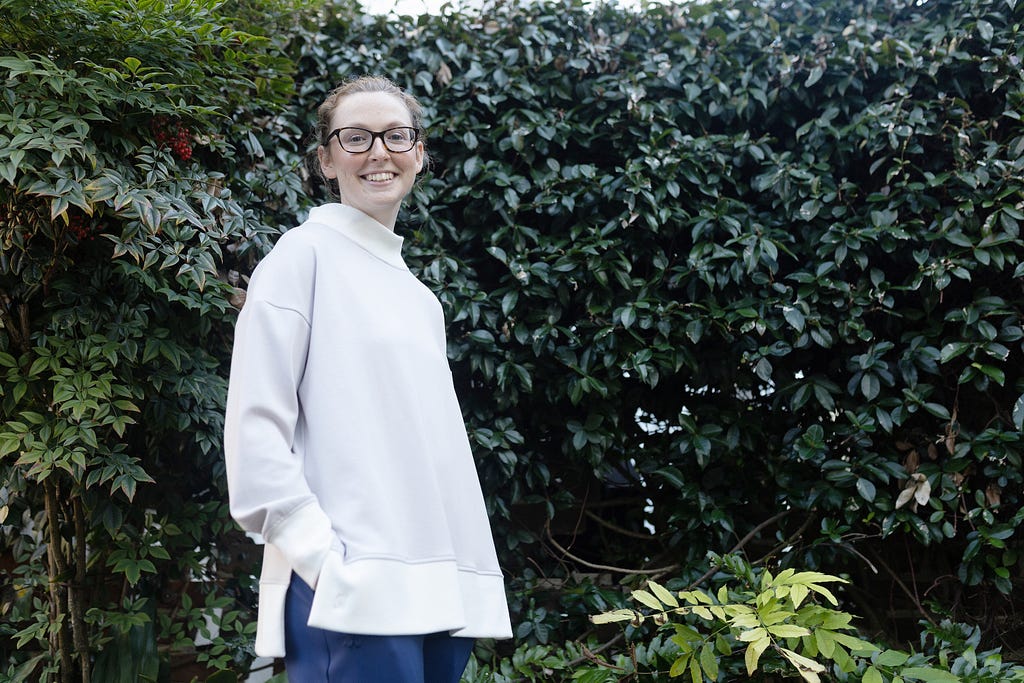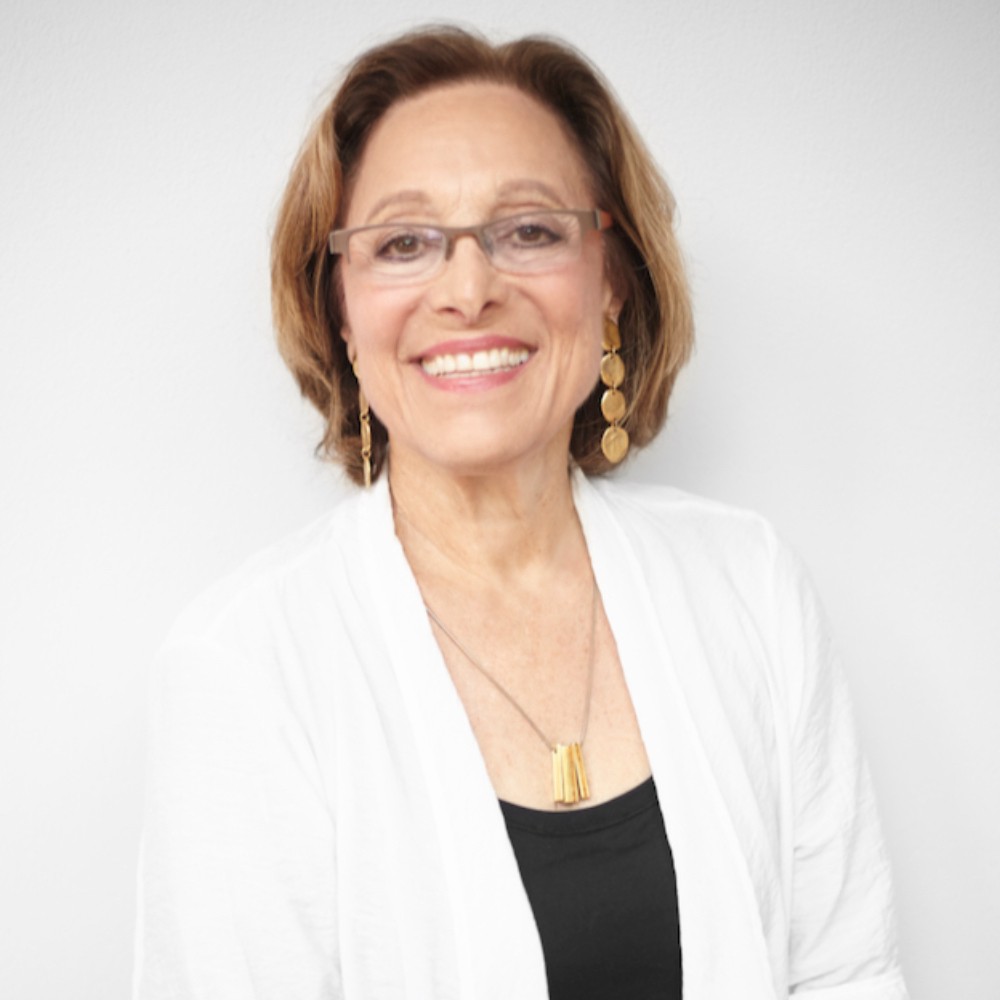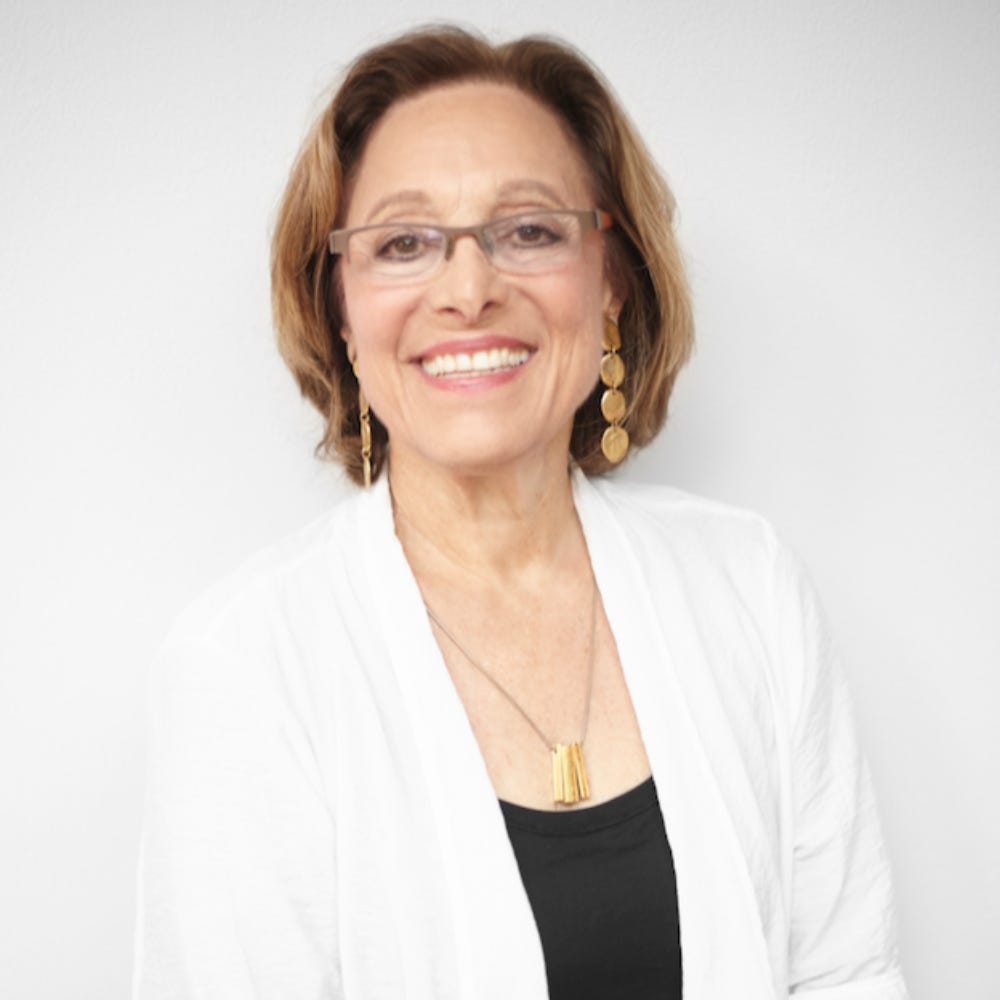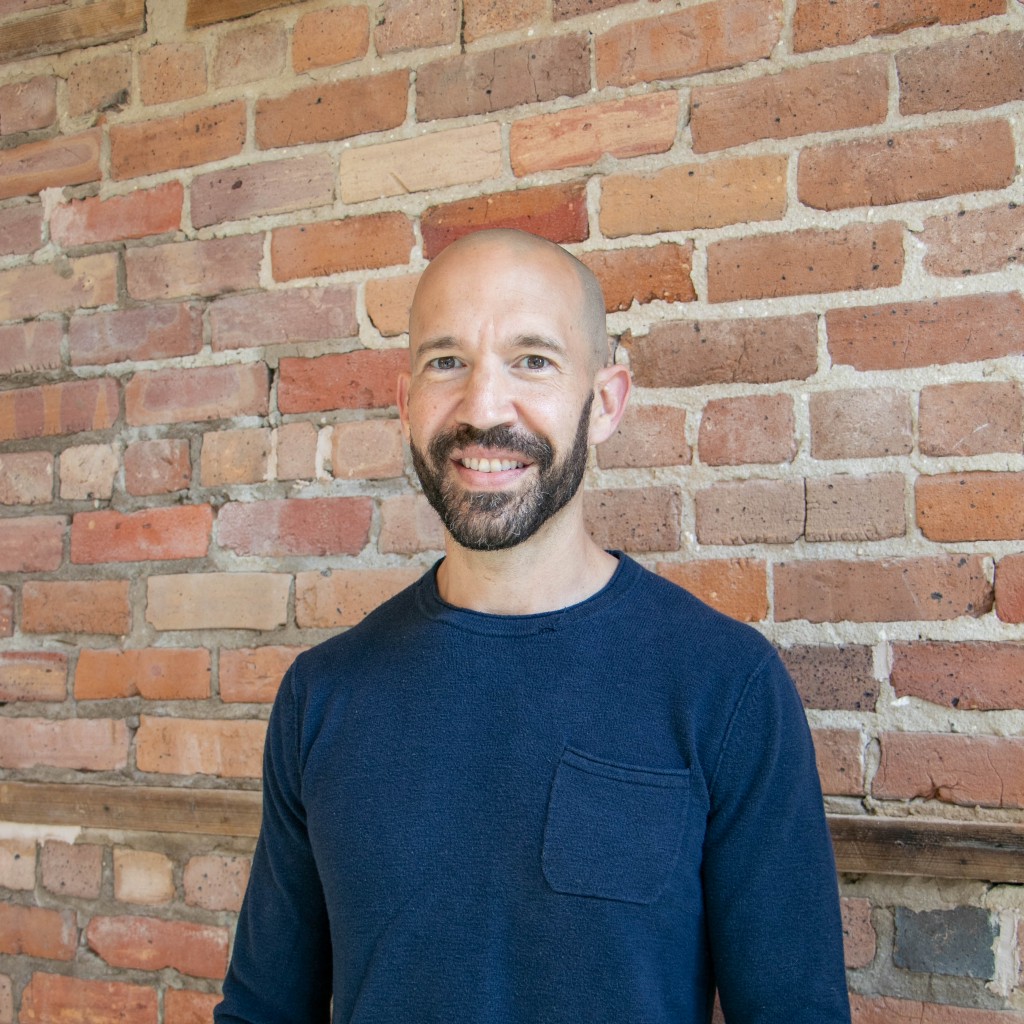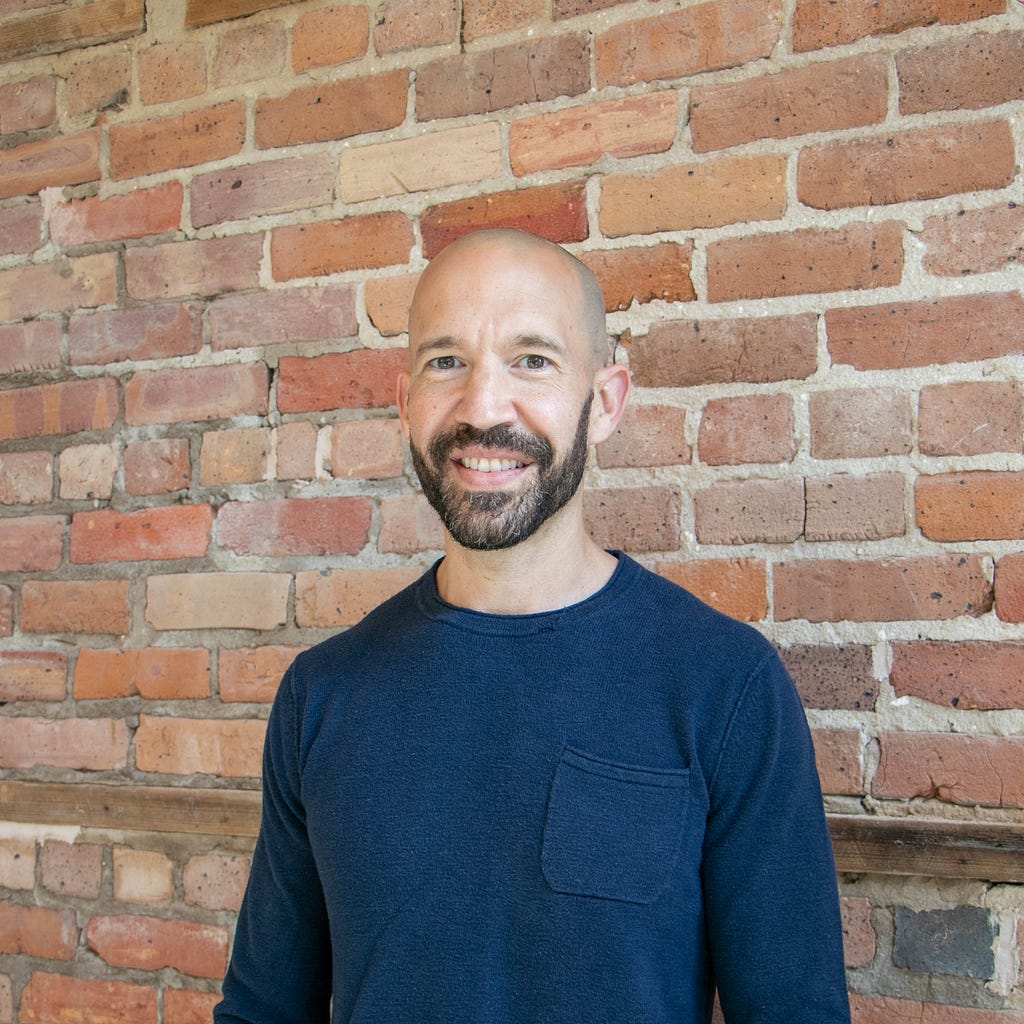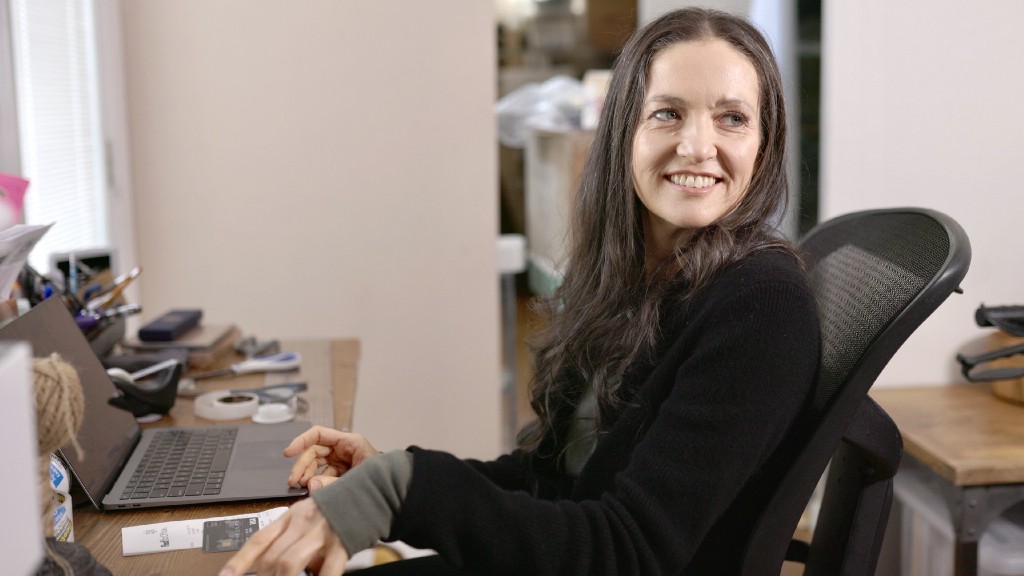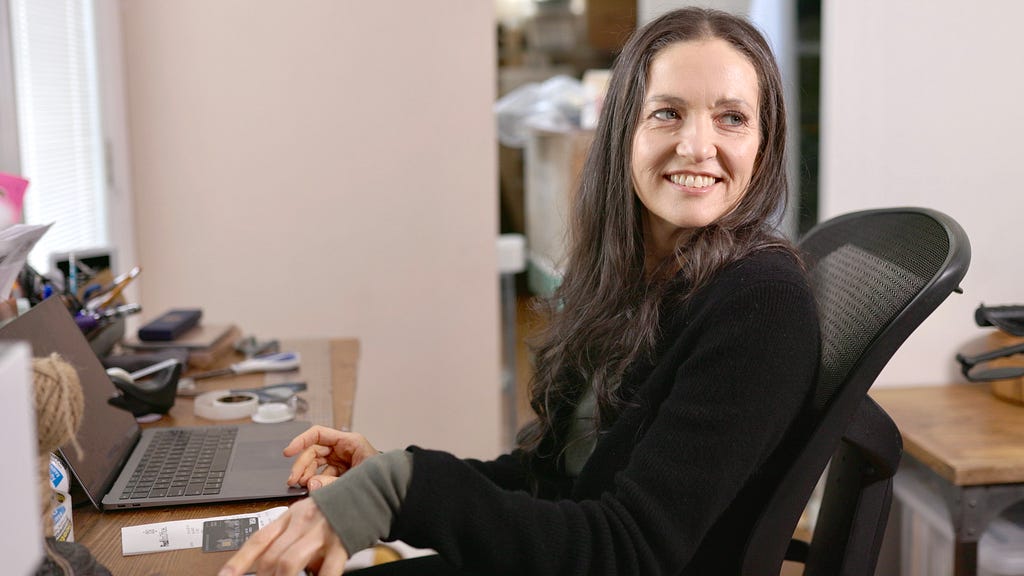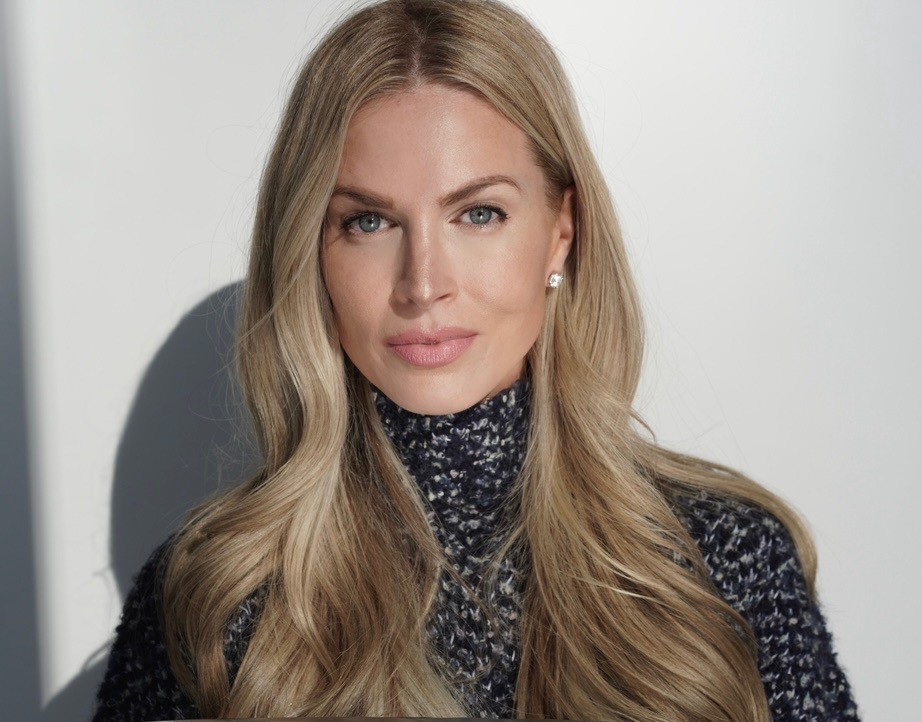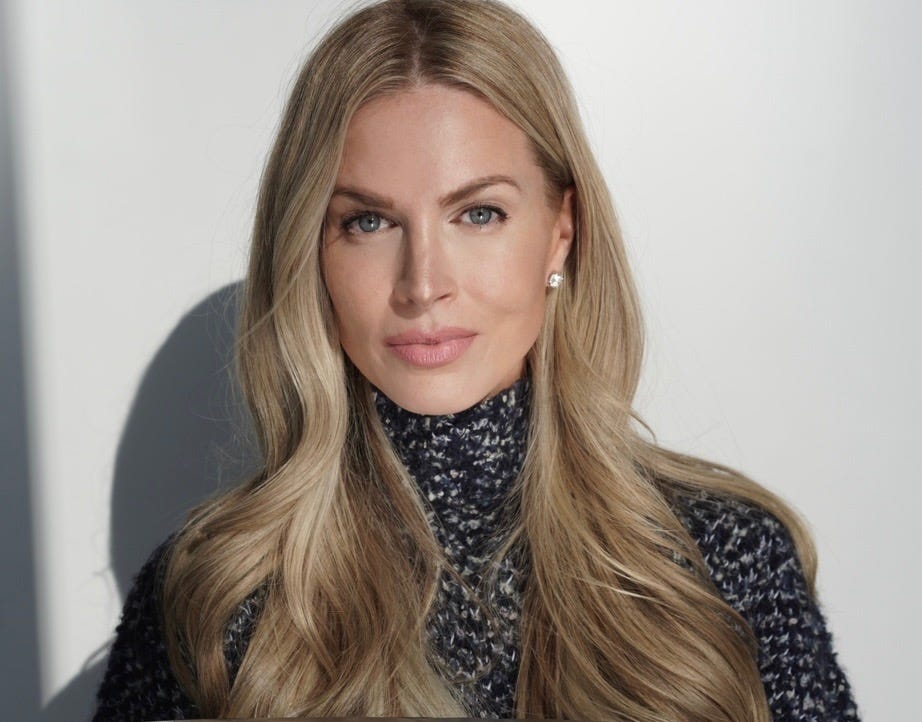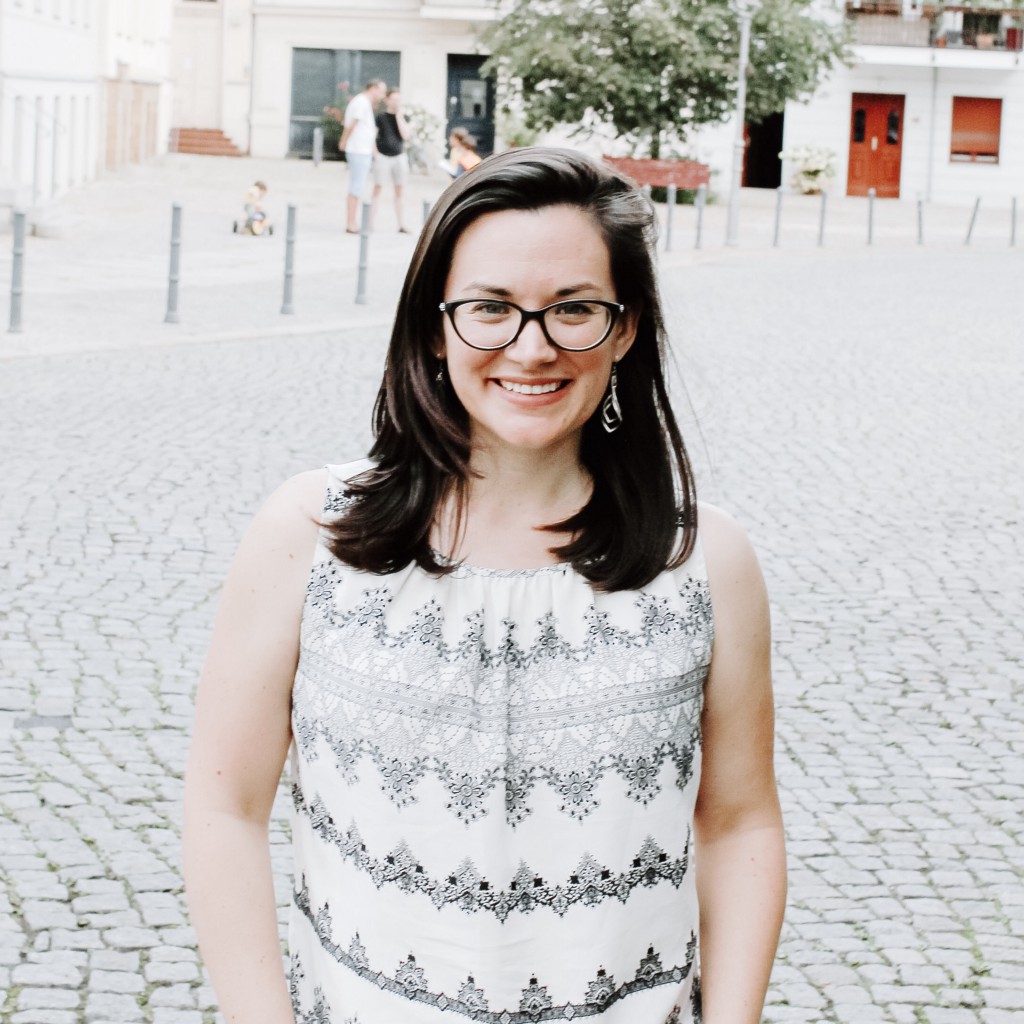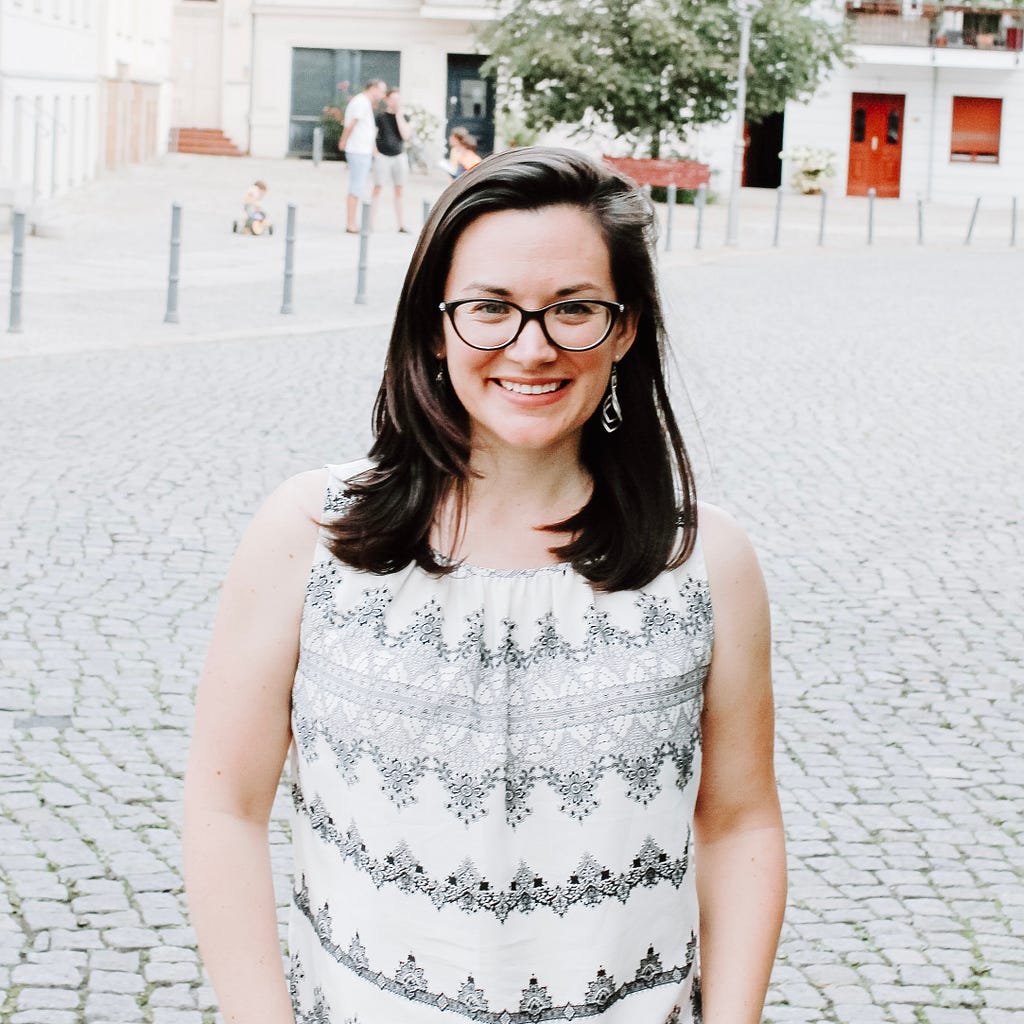Brandi Muilenburg Of Functionally Autoimmune and Gut Health Academy: 5 Lifestyle Tweaks That Can Dramatically Improve Your Wellbeing
An Interview With Candice Georgiadis

Make yourself a priority! You must make your health and wellness a priority, no one else will do this for you. It is never too late to make health a priority. It is never too late to focus on feeling better and healing. You and only you can take the steps necessary to become healthy and well.
As a part of our series about “5 Lifestyle Tweaks That Will Dramatically Improve One’s Wellbeing”, I had the pleasure of interviewing Brandi Muilenburg.
Brandi Muilenburg is a Registered Respiratory Therapist, Certified Nutritional Health Coach, and a Functional Nutrition Doctoral Candidate. Brandi owns and operates Functionally Autoimmune and Gut Health Academy where she helps people around the world heal from autoimmunity through gut health, nutrition, and lifestyle changes.
Thank you so much for doing this with us! Our readers would love to “get to know you” a bit better. Can you share with us the story about how you first got involved in fitness and wellness?
Of course, I have worked in critical care as a respiratory therapist for more than ten years. It was not until I began my own autoimmune healing journey that I really went headfirst into the wellness world. Having such a large science background and working in a hospital for many years I felt that I understood health and wellness. When I started having unexplained weight gain followed by numerous other symptoms I went to my primary physician for help. She took routine labs and after an exam told me I was fine and that my labs were normal. I was just getting older, and I should be happy to be healthy. I accepted this answer for several weeks until my gut issues got so bad, I could not ignore them. I went to see her again and she referred me on to another specialist. I saw forty doctors and had two major surgeries before I said that is enough. Despite the surgeries I was told again and again that I was fine, nothing was wrong with me. I then decided to take my health into my hands. I began researching and reading everything possible about my symptoms and about illness I knew matched certain ones. I found Hashimoto’s and Celiac Disease. I knew a little about both but had not given them much thought. I dug more and decided these fit every single symptom. I self-diagnosed and went to see my doctor with my newfound knowledge. I was told no; these did not fit and that I was fine. That was it, I was going to heal myself. I began treating myself through nutrition, lifestyle and did all I could to begin healing my body and reducing inflammation. By the time I found a physician that would listen I was already in much better health than before. My suspensions were confirmed, and I was able to begin further healing my autoimmunity. I became a certified health coach and worked hard on my own health. My celiac is controlled and my Hashimoto’s is reversed.
Can you share the most interesting story that happened to you since you started your career?
I think the most interesting story that has happened since starting Functionally Autoimmune is all the amazing people I have met along the way. I have worked with some amazing clients for all walks of life that have taught me just as much as I have taught them. I also have a podcast by the same name, and I have some of the most fascinating guests on the show. For me its meeting amazing people and seeing the wonderful transformations in health.
Can you share with our readers a bit about why you are an authority in the fitness and wellness field? In your opinion, what is your unique contribution to the world of wellness?
Of course, I think that I have much to offer to anyone suffering from autoimmune or chronic illness because I have been in their shoes. I hear so many stories so similar to my own and I know how my clients are feeling. I also specialize in gut health which is key to healing. 70% of our immune system lives in the gut so it is a step that can not be missed when reversing illness. I am currently working on my doctorial dissertation on gut health. So many people skip this critical step and find themselves back at square one or worse. My unique contribution to the world of wellness is that I understand gut health and lab values and I know how to use them for the most beneficial healing plans.
None of us are able to achieve success without some help along the way. Is there a particular person who you are grateful towards who helped get you to where you are? Can you share a story about that?
Oh yes, I agree. The journey to success much like the journey to health cannot be achieved alone. The person or people that I am most grateful for are my family. My husband is supportive and always super encouraging of my dreams and goals. No matter how crazy my ideas, he is there to support me. Our children are also super supportive, and they love hearing about all the people I meet on the podcast. They are by far my biggest cheerleaders.
Ok thank you for all that. Now let’s move to the main focus of our interview. We all know that it’s important to eat more vegetables, eat less sugar, exercise more, and get better sleep etc. But while we know it intellectually, it’s often difficult to put it into practice and make it a part of our daily habits. In your opinion what are the 3 main blockages that prevent us from taking the information that we all know, and integrating it into our lives?
Honestly, the main blockage to change is habits. We are creatures of habit and are often very hesitant to make changes even if we know they are good for us. For example, many times when I met with new clients I talk about small nutritional, or lifestyle changes they can start today. This is usually where the resistance comes in. Our lives are busier today than ever before in history. Many people are juggling jobs, families, finances, aging parents, illnesses, and more. The biggest goal for most is to get through the day. Being open to habit change is so important to healing. The second blockage is confusion. So much information is out there today on every topic imaginable. Many people I met with feel like they are eating healthy and doing the right things. They are often shocked to find out what is in the food they are eating or how small tweaks can change how they feel. The google rabbit hole has confused so many into poor health. Once habits are rebuilt and true knowledge regarding your own body and your own health are gained people make big changes. The third blockage to change is support. You need a support system for any journey, especially a healing journey. This can be family, friends, health coaches, online groups, or what ever that looks like for you. Often times when you embark on a new health journey the people around you don’t understand what you’re doing and can attempt to deter your efforts. Having a support system that understands and is there when you need them is critical in a successful healing journey.
Can you please share your “5 Non-Intuitive Lifestyle Tweaks That Will Dramatically Improve One’s Wellbeing”? (Please share a story or an example for each, and feel free to share ideas for mental, emotional and physical health.)
The five lifestyle tweaks that I see make the most dramatic success stories are:
- Find a community or support system that understands and supports your journey. Success is rarely achieved alone. If you sign up for health coaching or an online course, find a buddy to join with you so you have someone to talk about it with. Find a course or coach that provides one on one services or at least a monthly live call or zoom meeting. Having the support system will help you push through on the hard days and cheer you on during the easy ones.
- Seek to learn your body! This is important. Every single person’s healing journey is different. Your body has specific needs, it has a unique history and a unique set of goals. You can not learn your body through a google search. Seek out professional health coaches, nutritionists or functional medicine doctors that can help you find the clues to your body. Some courses or programs teach you how to find clues in your labs or even in your normal gut functions.
- Manifest your goals- Keep a journal of goals. This will keep these things in the front of your mind making them a priority in your life. We only get one body and one life so it should be a priority to feel our best and be healthy. The journal is yours to write your feelings, emotions, symptoms, wishes, dreams, goals, or anything that you want out of life. People who keep journals of their goals are 80% more likely to achieve them compared to those that do not journal.
- Move your body- Move your body every single day even for just ten minutes. If you work a desk job or sit for long periods of time during the day movement is a must for you. Take a short walk, stretch, do yoga, walk the dog, lift weights, ride a bike. It doesn’t really matter what you do just make sure you are moving your body every day. Physical exercise helps clear your mind and energizes your body.
- Make yourself a priority! You must make your health and wellness a priority, no one else will do this for you. It is never too late to make health a priority. It is never too late to focus on feeling better and healing. You and only you can take the steps necessary to become healthy and well.
As an expert, this might be obvious to you, but I think it would be instructive to articulate this for the public. Aside from weight loss, what are 3 benefits of daily exercise? Can you explain?
Of course, weigh loss should not be your primary goal when it comes to health and wellness. I know many people are thinking that sounds crazy but hear me out. The majority of weight gain is due to inflammation which you cannot exercise away. However, daily exercise can do so much more and once your inflammation decreases the weight will take care of itself. Three major benefits of daily exercise are:
- Energy. Your body wants to move and be active. The more you move the more energy you gain. Your body stores glucose in your muscles and cells to be used as energy when needed. Your body wants to use it, not store it.
- Sleep. Those who commit to at least ten minutes a day of exercise suffer from far less sleep related issues. When you move your body and release that stored up energy your body is able to relax and sleep better. Sleep is the time your body uses to heal, rebuild and repair.
- Mental Clarity. Daily exercise provides stress relief and mental clarity. Allowing you to have better memory and longevity.
For someone who is looking to add exercise to their daily routine, which 3 exercises would you recommend that are absolutely critical?
The three main daily exercises I tell my clients to focus on are:
- Strength training, this can be body weight training or weight training. Strength training helps develop your muscles and reduces stored fat cells. Reducing inflammation and giving you strong bones for added longevity.
- Yoga or stretching, this provides your muscles and fibers the stretch and support they need. This is also a great stress reliever and has been proven to reduce cortisol levels. It is also a great way to reduce your chances of injuries.
- Walking, it may seem simple and unexciting, but walking is one of the best things you can do for your body. Get out in nature or hop on a treadmill and walk. The natural motion of walking reduces cortisol levels, promotes healing and lengthens muscle fibers. We were made to walk, and our bodies benefit from it.
You are a person of enormous influence. If you could start a movement that would bring the most amount of good to the most amount of people, what would that be? You never know what your idea can trigger. 🙂
Wow, I guess if I had to pick one thing it would be to teach people how our current food supply effects our guts and our health. The U.S is one of the only countries in the world that allows large amounts of pesticides, chemicals, and additives to be in our food supply. These things are not only endocrine and hormone disruptors, but they have also been linked to many chronic illnesses. I would love to teach as many people as possible how to avoid these things and how to rid their bodies of them.
Can you please give us your favorite “Life Lesson Quote”? Do you have a story about how that was relevant in your life?
My all time favorite quite is by Hippocrates: “All disease begins in the gut”
I find this so powerful because it is so true. It is fascinating that even 2500 years ago he was able to determine this to be the case, yet we have moved so far from it in our own healthcare system. Gut health changed my life and has changed the lives of so many of my clients.
We are very blessed that some of the biggest names in Business, VC funding, Sports, and Entertainment read this column. Is there a person in the world, or in the US whom you would love to have a private breakfast or lunch with, and why? He or she might just see this if we tag them 🙂
There are so many amazing people in this world and so many doing amazing things. I think if I had to choose one person to sit down with-it would-be Dan Buettner. I love the work he is doing with the Blue Zones.
What is the best way our readers can follow you online?
Readers can find me on my website at functionallyautoimmune.com
Or guthealthacademy.teachable.com
They can also find me on Instagram @brandimuilenburg
Thank you for these fantastic insights. We wish you only continued success in your great work!
Brandi Muilenburg Of Functionally Autoimmune and Gut Health Academy: 5 Lifestyle Tweaks That Can… was originally published in Authority Magazine on Medium, where people are continuing the conversation by highlighting and responding to this story.


